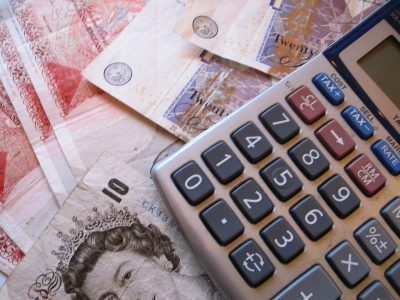
Cost-Of-Living Crisis Still Taking Centre Stage as UK Borrowing Drops
Investors are getting set for another twist on the rollercoaster with Monday’s gains set to be largely erased after Snap interrupted the brief rally with a very downbeat snapshot.
The FTSE 100 and FTSE 250 have opened 0.9% lower while in Japan the Nikkei slid by 1% and the Hang Seng in Hong Kong dropped by 2%.
The owner of Snapchat notched up fresh worries after the bell on Wall Street by lowering its revenue and profits forecasts for June and blaming the rapidly weakening economic environment.
That sent the stock into a tailspin, falling more than 30% in after-hours trading, pulling down other battered tech stocks with it, with Meta falling 7% and Pinterest by 11%.
Worries are mounting that advertising will be a big casualty as companies try and deal with squeezed budgets as input costs rise dramatically and the concern is that campaigns and budgets will be scaled back.
With the era of cheap money hurtling to an end the focus will be on a speech from Jerome Powell, the chair of the Federal Reserve later, with investors keen to glean any new titbit of information about just how far and fast the US central bank will go in raising rates and offloading its mass bond holdings.
In the UK, the cost-of-living crisis is still taking centre stage with clamour ratcheting up for support for the poorest households, as the Bank of England prepares borrowers to expect more interest rate rises as it attempts to keep a lid on rampant inflation.
Chancellor Rishi Sunak, the finance minister, has been given more wriggle room to take action with public borrowing coming in lower than expected at £18.6 billion in April.
Tax receipts piled up higher than forecast partly due to the increase in National Insurance contributions during the month, which added to the household budget squeeze.
However, the Treasury will be concerned that this may be a short term gain and there could be long term pain coming as the economy contracts, so ministers are unlikely to start splashing the cash, instead the purse strings are likely to loosen for small targeted support schemes.
The pound has pushed up higher against the dollar, up to $1.259, with sterling continuing to recover from the multi-year low it hit a fortnight ago as expectation mounts about a steeper path of interest rates.
As concerns mount over the fragility of the economies around the world, the oil price has slipped back, pulled down by ongoing worries about how detrimental China’s zero-covid policy will continue to be in terms of demand.
But supplies are tight and that’s still keeping the price of a barrel of Brent crude elevated at around $112.
A Russian oil embargo is still being pushed forward by EU nations and the head of Saudi Aramco has cautioned that a major supply crunch could be looming.
The wariness among energy firms about investing in fossil fuels as pressure mounts for the transition to greener energy appears to be acting as a cap on money flowing into production, and will be a lingering inflationary pressure which consumers, companies and policymakers will keep having to grapple with.


